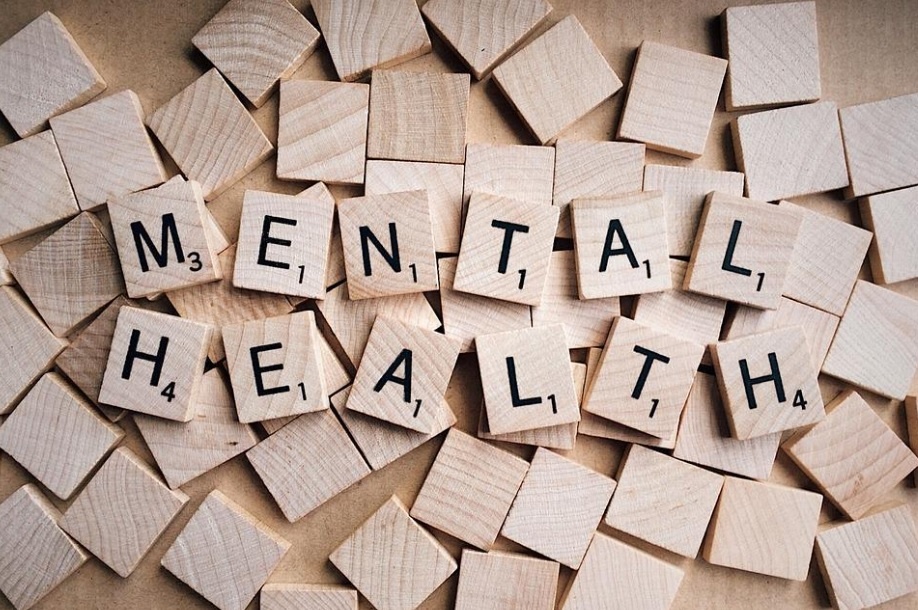Good mental health is vital for leading a happy life. It includes your emotional, psychological, and social well-being. Generally, mental health influences how you think, feel, and act. It also affects your physical health and how you cope with stress, and plays a crucial role in your self-esteem.
However, your mental health may be unstable due to uncontrollable factors like inherited traits, environmental exposure before birth, traumatic experiences, childhood history of abuse or neglect, and many more. Whatever the case, you must seek medication and restore your mental stability.

But that’s not enough, as you must ensure you take the drugs as prescribed to achieve the desired outcome. You can do this on your own or seek help from a reputable company. Thus, if you need assistance, you can visit sites like pvfcinc.com for quality mental health services, including medication management.
That said, here’s a comprehensive guide to managing your mental health medications:
Types Of Mental Health Medication And Their Side Effects
Below are the types of psychotropic medications, their uses, benefits, and side effects:
Stimulants
These are prescribed to patients with attention deficit hyperactivity disorder (ADH). They control disorganized behavior by boosting concentration and possessing a calming effect. Typically, stimulants foster alertness, focus, and energy for most people. Some side effects include:
- Increased blood pressure, heartbeat, and breathing
- Insomnia
- Hallucinations
- Loss of appetite
- Anxiety
- Weight loss
Antidepressants
These are drugs used to treat depression. However, they can be used sometimes to treat other conditions such as pain and anxiety. There are various types of antidepressants but don’t worry because your doctor will prescribe the one that best works for your state. The most popular are:
- Bupropion: This supports vital brain activity and can be applied to treat the seasonal affective disorder (SAD) or to assist people to stop smoking or suppress appetite.
- Selective Serotonin Reuptake Inhibitors (SSRIs): These treat depression by increasing the amount of serotonin in your brain. Serotonin is among the chemical messengers or neurotransmitters that transfer signals between brain nerve cells or neurons. SSRIs prevent the reuptake of serotonin into neurons. This increases the availability of more serotonin, which facilitates communication between neurons.
- Selective Norepinephrine Reuptake Inhibitors (SNRIs): They help ease depression signs like sadness and enhance the amount of norepinephrine in your body, which causes you to be awake and attentive.

Some side effects of antidepressants include:
- Constipation
- Dizziness
- Headache
- Drowsiness
- Diarrhea
- Dry mouth
Antipsychotics
These mental health medications help to control psychosis, which describes numerous situations in the brain. The sign of this condition is hallucinations or delusions. The drugs will help you think and sleep better, feel relaxed, and communicate more efficiently if you suffer from this condition. It can also be used to treat depression, eating disorders, post-traumatic stress disorder (PTSD), and obsessive-compulsive disorder (OCD).
Some side effects are:
- Blurred vision
- Weight gain
- Muscle spasms
- Sedation
- Sexual issues as a result of hormonal changes
Anti-Anxiety Drugs
These medicines are used to treat several anxiety disorders like panic attacks or intense fear and worry. The most common anti-anxiety drugs are known as benzodiazepines.
Possible side effects include:
- Confusion
- Nausea
- Sexual dysfunction
- Stomach upset
- Vision problems
- Mood swings
- Sleep issues
Mood Stabilizers
Mood stabilizers are usually used to treat bipolar disorders. This is a situation where your mood changes from a depressing feeling to an elevated manic sense or the other way around. These medications help lower extreme mood swings and hinder depressive and manic occurrences.
Some side effects are:
- Loss of appetite
- Fatigue
- Weakness
- Decreased sexual interest
- Tremors
- Confusion
Importance Of Managing Your Mental Health Medications

Ensuring you take the proper medications at the right time and dose goes a long way to enhancing your mental health recovery. You may have a prescription for only one drug or several drugs. Additionally, your prescription may be short-term or long-term. Whichever the option is, it’s essential you take your medications properly. Here are the advantages of doing so:
- Reduces the occurrence of mistakes: Medication errors can result in adverse side effects, make the drugs ineffective, or even lead to death. When you manage your medications properly, you won’t confuse any drug or take an overdose or underdose. This way, you lower any blunder that may be caused by mismanagement.
- Provides targeted care and ensures the best outcome: When you manage your mental health drugs well, you receive excellent medication for them. Additionally, your doctor can carefully observe your response to the dosage. In this way, if your health declines or stops responding in the usual manner, your doctor can quickly notice and change the prescription immediately. This meticulous management ensures you receive the best outcomes from your medication.
- Offers cost-efficient care: The effects of mismanagement of medications can adversely affect your health. For instance, the condition may worsen and require emergency medical attention. This can be costly as you may be hospitalized and even need additional medical treatment.
- Streamlines your medication routine: Sometimes, managing chronic mental health issues can be nerve-racking. However, following your doctor’s prescriptions gives you nothing to worry about. You’re sure no mistake will happen, providing peace of mind.
- Ensures your medication fulfills its purpose: Every mental health medicine has an intention and is prescribed with a goal. Some may help prevent and cure your condition while others will suppress the symptoms and mitigate the pain. Your doctor understands your need, and they’ll prescribe drugs that best work for your specific situation. Also, they know how to take them; thus, if you follow this correctly, the medicines will work adequately.
Things To Consider Before Taking The Medications
As outlined above, there are numerous types of mental health drugs available. Before your doctor prescribes any to you, they first perform a range of tests to diagnose your mental health issue. They must determine your signs and symptoms, emotions, and thoughts. They’ll look at everything possible including your family and medical background. This means that when they prescribe medicine, they know it’ll work perfectly with you. Hence, for you to ensure you manage your drugs well, here’s what you need to know:
- The types of drugs: You need to understand the kind of medicines you’re taking, their purpose, efficiency, safety, and potential risks of mixing them with certain medications or foods. This encourages you to take a more active role in managing your medicine and overall mental health.
- Potential side effects: Mental health medications come with many possible side effects. Knowing them is essential as you’re mentally prepared for what to expect and do when you get them.
- The cost of the medications: The price of mental health drugs can sometimes be high depending on your condition. Knowing this information can motivate you to be more careful with managing your medications as you wouldn’t want to spend much money buying extra drugs simply because of carelessness.
- How the medicines work: Understanding the role of medication in mental health and the effects of missing a dose enables you to be more responsible and manage them properly.
Tips For Effectively Managing Your Mental Health Medications
Mental health drugs must be appropriately taken, i.e., with the right timing, frequency, dosage, and duration. However, you sometimes may not be able to manage your medications efficiently due to confusion, negligence, or simply because you don’t have a functional procedure. Below are some tips that can help you to manage your medicines appropriately:
Always work with your doctor:

You may not always remember some information like the side effects of certain drugs, dosages, and how long it takes to take effect. Moreover, you may not understand every single detail of your medications. In such cases, consulting your doctor is the best way to handle your doubts. Furthermore, if the drugs are causing side effects, you may not tolerate or are making you sick, always inform your healthcare provider. Lastly, don’t stop taking any medication without your doctor’s consent. This is because you may need to eliminate some drugs to prevent complications gradually.
Managing medicines stopped by your psychiatrist:
For any drugs, you’ve been informed by your provider to discontinue and dispose of them straight away. Don’t keep them for future use, as you may end up taking them accidentally and causing adverse harm to your health.
Sort your medications into a pillbox:
A pillbox is a case you can use to arrange your medication doses for a particular period. It makes it easier for you to remember to take your drugs and also simplifies complex prescriptions. This is primarily useful if you’re taking different medicines as they help you not to miss any dose.
Have realistic expectations:
Some misbelief about mental health drugs is that they immediately help you feel better. This may not always be true as it can take days and even weeks for them to have an impact on your mood. Additionally, the drugs can relieve some of your mental illnesses and don’t provide a long-lasting solution to your condition. Therefore, you must learn that medication alone won’t miraculously solve your mental health issues, but you need to be patient and change your lifestyle.
Stick to your medication:
Adhering to your medication is essential to obtaining treatment goals and ensuring that your drugs work as intended. If you don’t stick to the prescription provided by your doctor, your mental health may worsen rather than improve. This may force you to visit your doctor often and use the extra money for something you can avoid.
Don’t take any drugs apart from the ones prescribed:
Some mental health medications can produce unpleasant or harmful side effects when taken with other drugs. For this reason, consult your doctor before taking any other medicines.
Ensure you refill your prescription before they expire:
Refilling your prescription before they run out is critical to your recovery. Most of these medications need a daily dose, and missing even a single dose can dramatically affect your treatment plan. Refilling your medicine is an easy process. You need to ensure you have the refills available. Mostly, prescription bottles or boxes have labels indicating refills with the number and refill date. This information will guide you and ensure you don’t miss any doses simply because you didn’t know when to refill them.
Request somebody to help keep you responsible:
Sometimes, during difficult times, like when grieving for the loss of your loved one, you may be unable to stick to your treatment plan. To stay accountable during these times, ask someone you trust to help you. You may request your close friend or neighbor to check in regularly and ensure you take your medication as prescribed.

What To Do If You Miss A Dose
It’s always good to follow your prescriptions strictly without delaying or missing to take even a single dose. This is because psychotropic drugs put chemicals in your bloodstream and to maintain a steady level of these chemicals, you must take them as specified. However, you may sometimes forget to take your drugs at the prescribed time. This can make you experience withdrawal effects. For instance, your moods can instantly change, and you start crying or feel suicidal. So, if you miss your dose, here’s what you can do:
- Take the dose as soon as possible unless it’s near the following amount, which can result in a double-up. This may lead to toxicity or overdose. In this case, you need to skip the missed doses and take the next one as usual.
- You have two options if it’s more than two hours since you missed your dose. The first one is to take it immediately if the prescription is twice a day. Secondly, if you take it at least thrice a day, it’s safe to wait and take it at the regular time.
- Consult your doctor before taking it, or if you experience unusual symptoms you’re concerned about.
Conclusion
Nobody ever wants to be mentally sick. However, some things in your life can make your mental health deteriorate. In this situation, you shouldn’t give up in life but once you experience the signs of mental illness, consider seeking medication as soon as possible. As you know, every medicine has a unique prescription, which ensures you receive the best results. Remember, some people care as much about your mental health as you do. Therefore, if you feel you can’t properly manage your medication alone, never hesitate to involve a reputable company. These people are experts, and they’ll draft a detailed plan that’ll work for you.
About the author:

Dr. Claudio Butticè, Pharm.D., is a former Pharmacy Director who worked for several large public hospitals in Southern Italy, as well as for the humanitarian NGO Emergency. He is now an accomplished book author who has written on topics such as medicine, technology, world poverty, human rights, and science for publishers such as SAGE Publishing, Bloomsbury Publishing, and Mission Bell Media. His latest books are “Universal Health Care” (2019) and “What You Need to Know about Headaches” (2022). A data analyst and freelance journalist as well, many of his articles have been published in magazines such as Cracked, The Elephant, Digital Journal, The Ring of Fire, and Business Insider. Dr. Butticè also published pharmacology and psychology papers on several clinical journals, and works as a medical consultant and advisor for many companies across the globe.
References:
- VA/DoD Clinical Practice Guideline. (2022). The Management of Major Depressive Disorder. Washington, DC: U.S. Government Printing Office. Retrieved from: https://www.healthquality.va.gov/guidelines/MH/mdd/VADoDMDDCPGFinal508.pdf
- WHO guidelines on mental health at work. Geneva: World Health Organization; 2022. Licence: CC BY-NC-SA 3.0 IGO.
- National Institute for Health Care and Excellence (NICE). (12 February 2014). Psychosis and schizophrenia in adults: prevention and management. Clinical guideline [CG178]. Retrieved from: https://www.nice.org.uk/guidance/cg178
- Diagnostic and Statistical Manual of Mental Disorders, 5th Edition: DSM-5. APA. May 27, 2013. p. 803. ISBN 978-0890425558.
- Ayers, Susan (23 August 2007). Baum, Andrew; McManus, Chris; Newman, Stanton; Wallston, Kenneth; Weinman, John, eds. Cambridge Handbook of Psychology, Health and Medicine (2nd ed.). Cambridge University Press. p. 677. ISBN 978-0-521-87997-2.
- Taylor, D. M., Barnes, T. R. E., & Young, A. H. (2021). The Maudsley prescribing guidelines in psychiatry (14th ed.). Wiley-Blackwell.
- National Collaborating Centre for Mental Health (UK). Common Mental Health Disorders: Identification and Pathways to Care. Leicester (UK): British Psychological Society (UK); 2011. (NICE Clinical Guidelines, No. 123.) Available from: https://www.ncbi.nlm.nih.gov/books/NBK92266/
- 2019–2020 Florida Best Practice Psychotherapeutic Medication Guidelines for Adults (2020). The University of South Florida, Florida Medicaid Drug Therapy Management Program sponsored by the Florida Agency for Health Care Administration